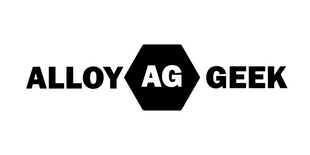Description
1100 Commercially Pure Aluminum Certified Reference Material (CRM)
This 1100 aluminum certified reference material is a high-purity aluminum alloy widely used as a standard for calibrating and verifying your spectrometer (XRF, ICP-OES, Spark-OES, etc.). This material is precisely manufactured and certified to have traceable measurements and specified impurity levels, ensuring reliable results for laboratories performing calibration, quality control, and materials testing.
Certified 1100 Aluminum Chemical Composition:
- Al: Balance
- Si: 0.16%
- Fe: 0.60%
- Cu: 0.092%
- Mn: 0.029%
- Cr: 0.017%
- Ni: 0.036%
- Zn: 0.030%
- Ti: 0.032%
- V: 0.012%
- Ga: 0.030%
- Zr: 0.011%
- Sn: 0.017%
- Pb: 0.018%
- P: (0.005%)
- Be: 0.003%
- B: (0.002%)
- Mg: 0.012%
- Bi: 0.014%
- Ca: (0.002%)
Typical 1100 Aluminum Chemical Composition:
- Al: 99.0% minimum
- Cu: 0.05% - 0.20%
- Mn: 0.05% max
- Zn: 0.10% max
- Others: 0.05% each, 0.15% total
Other Names:
AA1100, UNS A91100, Commercially Pure Aluminum, ISO AL99.0Cu, EN AW-1100, JIS A1100, ASTM B209, ASTM B210, ASTM B211, ASTM B221, ASTM B483
Available material forms:
- XRF: ~0.25" thick disc, ~1.5" diameter
- OES: ~0.75" thick disc, ~1.5" diameter
- Chips: 50g of chips
Reference Material (RM):
A reference material, or RM, is a material with a known grade and/or chemical composition that is typically used for alloy or grade identification.
Certified Reference Material (CRM):
A certified reference material, or CRM, is a material that has been thoroughly analyzed and characterized using multiple validated methods to determine its chemical composition. The results of these analyses are then used to establish certified values, along with associated uncertainties. CRMs are produced and certified by accredited organizations or laboratories following internationally recognized standards, such as ISO Guide 34 (ISO 17034).
Please Contact Us if you would like to know the specific dimensions of a sample.


